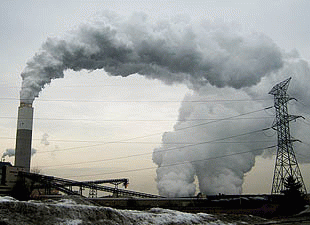A
new global study ranks air pollution as one of the top 10 killers in the world,
with 65 percent of the air pollution deaths occurring in Asia.
A new global study ranks air pollution as one
of the top 10 killers in the world, with 65 percent of the air pollution deaths
occurring in Asia.
The findings of the new Global Burden of
Diseases, Injuries, and Risk Factors Study 2010 (GBD) were released at a public
event at the Royal Society of London on Friday.
The launch coincides with the publication in
The Lancet of seven original research articles and eight commentaries
describing the findings.
Based on the latest tally, air pollution causes
3.2 million deaths worldwide, a whopping 300 percent increase from the 800,000
estimate in 2000. The new estimates of particulate air pollution are based on
ground-level measurements, satellite remote sensing, and global chemical
transport models to capture population exposure.
In South Asia, air pollution has been ranked
as the sixth most dangerous killer, just below blood pressure, tobacco smoking,
indoor air pollution, poor intake of fruits, and diabetes.
Outdoor air pollution is a leveler that makes
everyone – rich or poor – vulnerable, says The Center for Science and
Environment (CSE) based in New Delhi, India,
“This GBD count on air pollution and its
health risks must trigger urgent, aggressive, and most stringent action in
India to curb air pollution to protect public health. India cannot afford to
enhance health risk at a time when much of its economic growth and motorization
are yet to happen,” said Anumita Roychowdhury, CSE executive director of
research and advocacy and head of its air pollution unit.
The GBD estimates that over 2.1 million
premature deaths and 52 million years of healthy life lost in 2010 are due to
fine particle air pollution in Asia.
1.2 million deaths occurred in East Asia
which is in throes of high level of economic growth and motorization, and
712,000 deaths occurred in South Asia which is at the take-off stage.
These figures are much higher than the
combined toll of 400,000 in EU 27, Eastern Europe, and Russia.
The CSE recommends that National Ambient Air
Quality Standards be legally binding across India. Better fuel quality and
in-use vehicle management could also cut the health impact of motorization, it
says.
India must also control and cut the explosive
increase in vehicle numbers by scaling up public transport, non-motorized
transport, and compact city planning, while also cleaning up critically
polluted areas, it adds.
The latest GBD results were produced by more
than 450 global experts and partner institutions including the World Health
Organization, Johns Hopkins University, and the University of Tokyo.
Source: CSE India


No comments:
Post a Comment